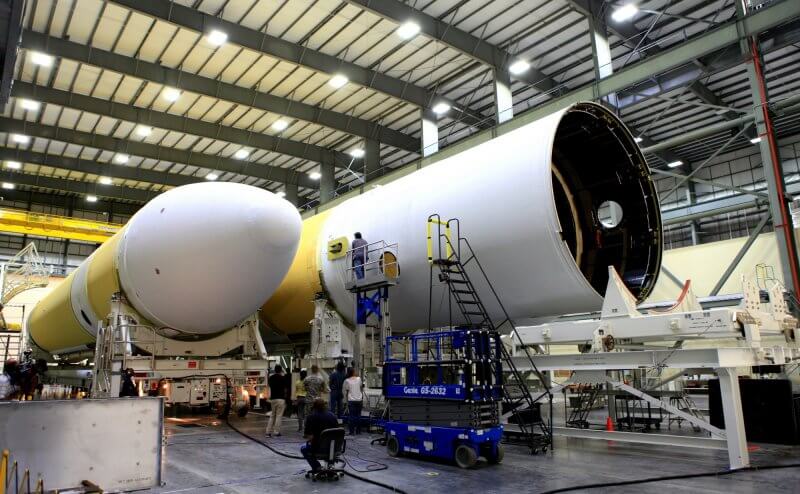
The construction of the Cyclone-4M launch vehicle as part of a commercial project of the space sector companies of Canada, the United States and Ukraine in the Canadian province of Nova Scotia could begin in May, CEO of Canada’s Maritime Launch Services (MLS) Steve Matier has said.
While estimating the progress of the project in an interview with Canada’s SpaceQ, Matier said that in February the company plans to complete the work on exploring the area for the spaceport in the province of Nova Scotia so that the construction of the launch complex could begin in the spring of 2018. Collected data, Matier said, will be transferred to the local Canadian authorities for granting a construction permit.
“If that goes okay and they come out of that 50-day review cycle, I mean, there are three options. Obviously there is a reject, there is an accept, there is an accept with provisos,” he said, adding that in the event of a positive decision, after the procedure for renting a land plot, construction work might begin in May.
“If everything goes okay we can hit a May 1st ground-breaking,” Matier said.
When asked about the progress of cooperation on the project with the Ukrainian side in the development of the Cyclone-4M carrier rocket, he recalled that the Cyclone-4M launch vehicle is being created on the basis of the previous Cyclone-4M project.
“This is a medium class rocket, so we’ve got on the shelf a ready to go design for handling the medium class rocket, and we’ll use a Zenit second stage proven hardy engine that’s flown 60-something times, a hundred percent successful, into the overall structure for the Cyclone-4M,” he said, adding that it is planned to begin the assembly of the Cyclone-4M launch vehicle “after we get through this design, review, and integration process.”
Speaking about the plans for the launch program of the project, Matier said: “At this point, we are looking at the summer of 2020 for a first launch. There is a great deal of work obviously we need to do to get there with a solid 18-months of site construction and another six-months of commissioning.”
“That’s why we are looking at a May 1st and what can follow from that for getting to a July 2020 launch date,” he said, adding that there are some potential customers that are interested in the first launch.
At the same time, Matier noted that the plans of the launch program depended on the Ukrainian partner – the Pivdenne (Yuzhnoye) Design Bureau (Dnipro).
“The potential from just the Yuzhnoye, Yuzhmash direction is they have a production schedule that they have shared with us that can deliver a launch vehicle every 29 days or so. So conceivably we could launch 11 to 12 rockets out of there. From investor perspective, return on investment perspective, we are extremely comfortable with making our, you know, customers and clients happy with eight launches per year,” he said.
“We have certainly seen an interest in the market out there that would be able to fill that manifest,” he added, noting that “there is a potential for other launch vehicles to join into this process, and including sub-orbital sounding rockets.”
Matier also confirmed that there was a preliminary agreement with potential customers for the project to pay about 400 million Canadian dollars for future launch services. He did not voice their names, specifying only that “there are a couple that are very close to crossing the line with respect to Canada, but the other ones are international.”
He said that the company was already completing the so-called “seed funding and bridge funding” stage of project investment.
“So it’s looking extremely positive for us from that financial perspective,” he said.
Explaining the optimism about the good prospects of the project, Matier said: “This project is a one hundred percent commercial project. That’s probably the key piece to it…. The reality is as a commercial project we are under finalizing direct contracts with Yuzhnoye and Yuzhmash as suppliers to us. This is exactly the way it is operating very well for Orbital ATK with the Antares first stage.”
He said that the Cyclone-4M launch vehicle project was considered a priority in bilateral Ukrainian-Canadian cooperation in the space sector as the legal basis for this partnership is fixed in a memorandum signed by the space agencies of the countries in Ottawa at the end of 2017.
“Some of the conversations that we’ve had dealing with some government entities do involve them potentially buying the services and, you know, getting some payload space for themselves and their missions. That is certainly the case,” Matier said.
“We have selected a construction management company for this project, and it’s Lindsay Construction, the largest construction firm in Atlantic Canada,” he said.